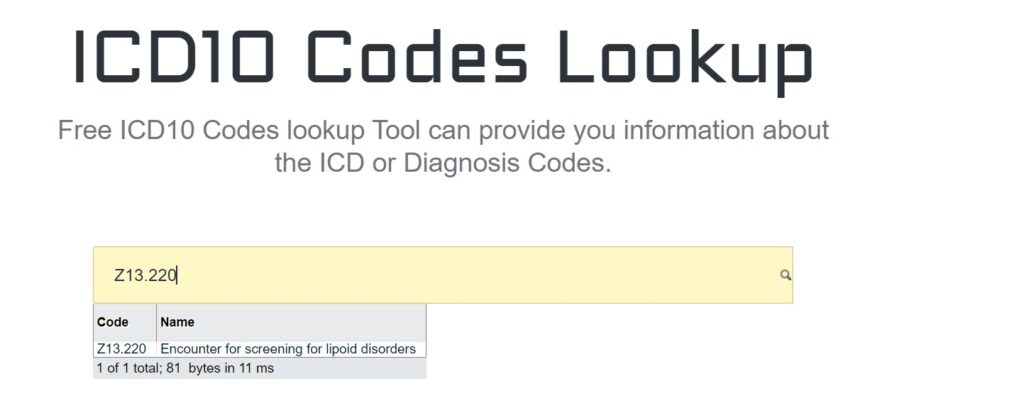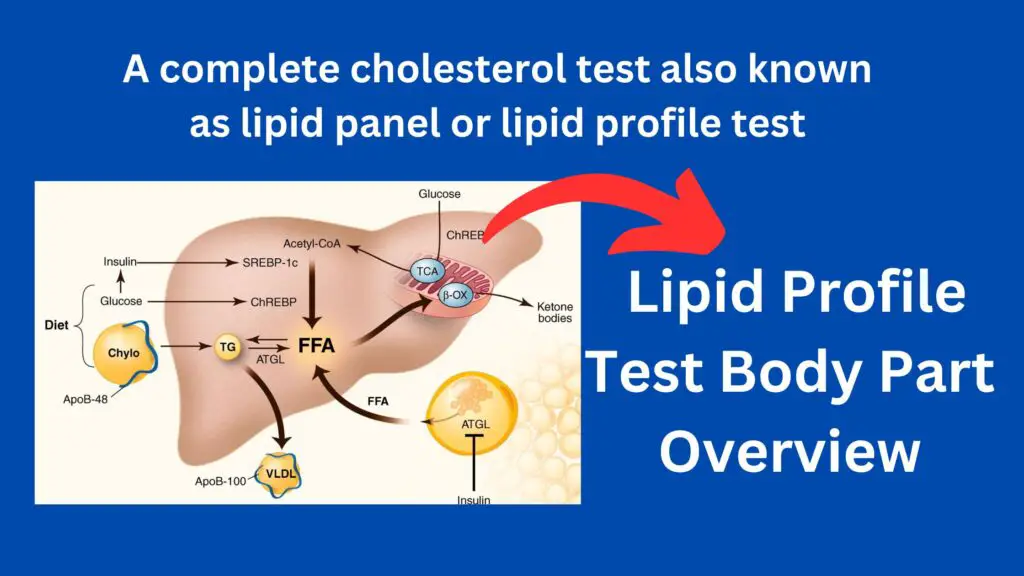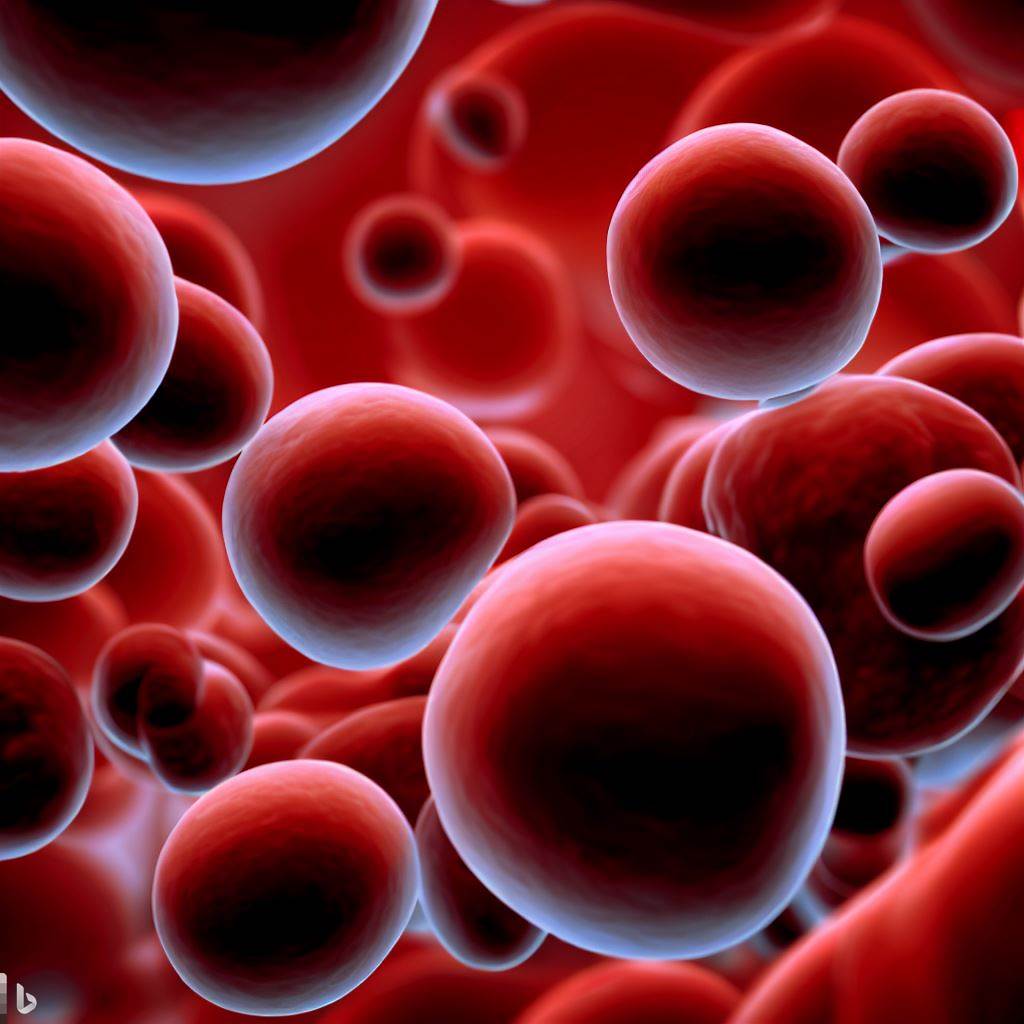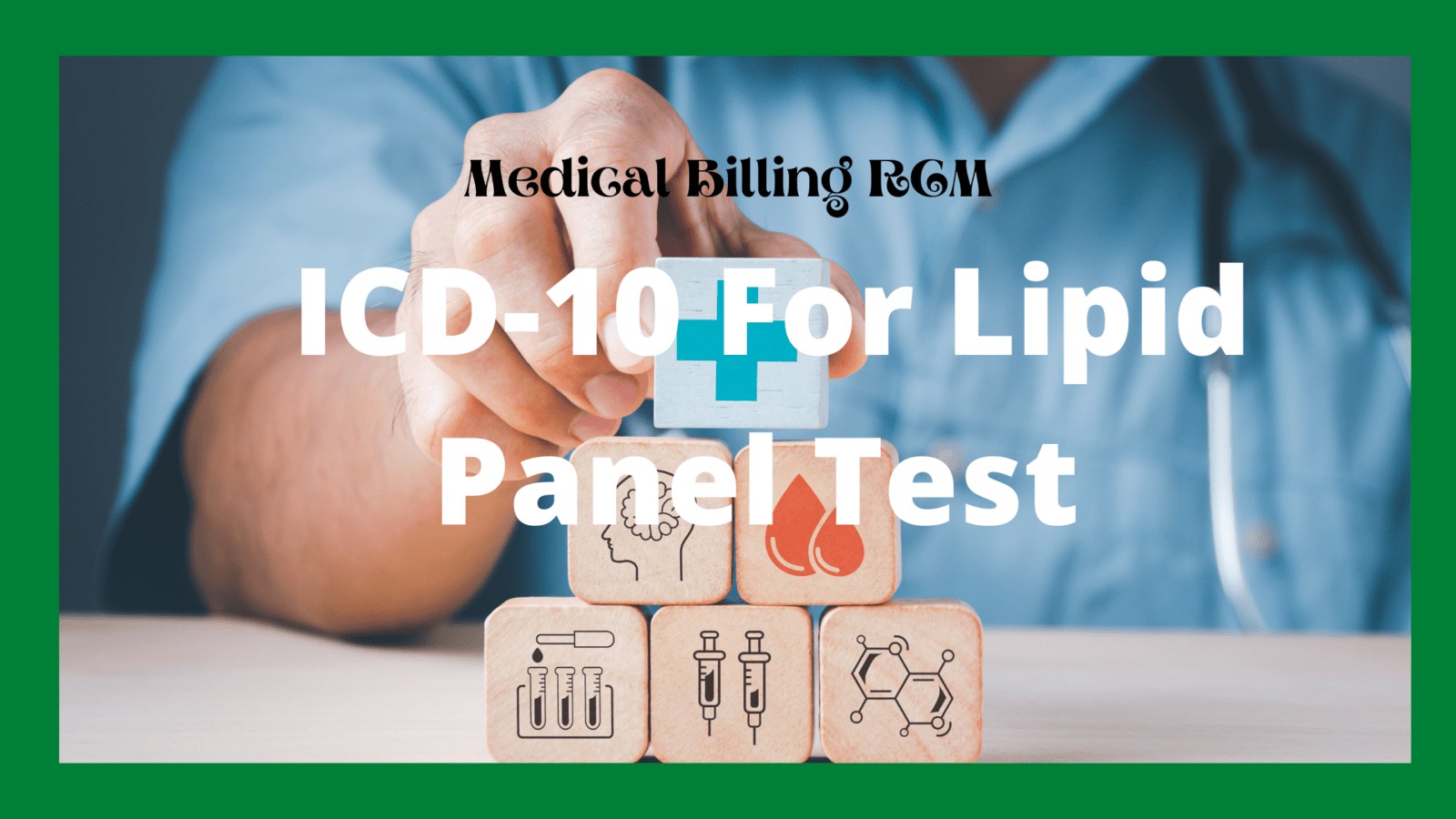Lipids are fat molecules in blood and lipid panel is a blood test that measures the amount of lipid molecules in the blood. In this test, the panel includes 4 different cholesterol and triglycerides measurements of your blood.
In this article, we’ll briefly discuss into what the ICD 10 Code for Lipid Panel is, why it’s important, and how it’s used in healthcare. We’ll also answer some common questions about lipid panels and their relevance to your health.
Table of Contents
- ICD-10 Code For Lipid Panel Test
- What is the ICD 10 Code for Lipid Panel?
- Lipid Panel’s other names:
- FAQs:
- Conclusion:
- Related Articles:
ICD-10 Code For Lipid Panel Test
Z13.220 is a specific ICD-10-CM code that can be used to indicate a diagnosis for reimbursement purposes.

| ICD Code | Description |
| Z12.82 | Screening for malignant neoplasm of the nervous system |
| Z12.83 | Screening for malignant neoplasm of skin |
| Z12.89 | Screening for malignant neoplasm of other sites |
| Z12.9 | Screening for malignant neoplasm, site unspecified |
| Z13 | Screening for other diseases and disorders |
| Z13.0 | Screening for diseases of the blood and blood-forming organs and certain disorders involving the immune mechanism |
| Z13.1 | Screening for diabetes mellitus |
| Z13.2 | Screening for nutritional, metabolic and other endocrine disorders |
| Z13.21 | Screening for the nutritional disorder |
| Z13.22 | Screening for metabolic disorder |
| Z13.220 | Screening for lipid disorders |
| Z13.228 | Screening for other metabolic disorders |
| Z13.29 | Screening for other suspected endocrine disorders |
| Z13.3 | Screening examination for mental health and behavioral disorders |
| Z13.30 | Non-specified |
| Z13.31 | Screening for depression |
| Z13.32 | Screening for maternal depression |
| Z13.39 | Screening examination for other mental health and behavioral disorders |
| Z13.4 | Screening for certain developmental disorders in childhood |
| Z13.40 | Screening for unspecified developmental delays |
| Z13.41 | Autism screening |
What is the ICD 10 Code for Lipid Panel?
The ICD 10 Code for Lipid Panel is Z13.220. This ICD code is used to identify a patient who has undergone a lipid panel blood test. The code falls under the category of “encounter for screening, not otherwise specified,” which means that it is used when a patient undergoes a medical screening or test for a certain condition, but doesn’t have any symptoms or diagnosis related to that condition.

Lipid Panel’s other names:
- Lipid profile.
- Lipid test.
- Cholesterol panel.
- Coronary risk panel.
- Fasting lipid panel or non-fasting lipid panel.
Lipid Panel is a complete cholesterol test this is also called a lipid profile test. It is a blood test for cholesterol and triglycerides amount in your blood.
A Lipid panel test is very important for heart patients and blood pressure patients. High cholesterol levels are often a risk factor for coronary artery disease.
A complete Lipid Panel test includes the four types of fats in your blood:
- Total cholesterol. This is the total of your blood’s cholesterol content.
- Low-density lipoprotein cholesterol (LDL). This is “bad” cholesterol. Too much of it in your blood causes the buildup of fatty deposits (plaques) in your arteries (atherosclerosis), which reduces blood flow. These plaques sometimes rupture and can lead to a heart attack or stroke.
- Very low-density lipoprotein cholesterol(VLDL): This type of cholesterol is usually present in very low amounts when the blood sample is a fasting sample.
- High-density lipoprotein (HDL) cholesterol. This is called the “good” cholesterol because it helps carry away LDL cholesterol, thus keeping arteries open and your blood flowing more freely.
- Triglycerides. Triglycerides are also a type of fat in the blood. When you eat, the Body converts calories which not need convert into triglycerides, which are stored in fat cells. High triglyceride levels are associated with several factors, like being overweight, eating excess sweets drinking excess alcohol, smoking, being sedentary, or having diabetes with elevated blood sugar levels.
ICD-10 For Lipid Panel Test- Z13.220
Synonyms of Lipid panel:
- Screening for hypercholesterolemia (high cholesterol)
- Screening for hypercholesterolemia done
- Screening for hyperlipidemia
- Screening for hyperlipidemia done
- Screening for lipid disorder
- Screening for lipid disorders done

FAQs:
Ans. A lipid panel measures different types of cholesterol and triglycerides in your blood, including LDL (bad) cholesterol, HDL (good) cholesterol, and total cholesterol.
Ans. A lipid panel blood test can help assess your risk for heart disease, which is the leading cause of death in the United States. By identifying high levels of cholesterol and triglycerides, healthcare providers can work with you to develop a plan to reduce your risk.
Conclusion:
The ICD 10 Code for Lipid Panel may seem like a small piece of information, but it plays an important role in healthcare and public health research. By identifying patients who have undergone lipid panel blood tests, healthcare providers can more accurately bill insurance companies and track the prevalence of high cholesterol and triglycerides in different populations.
Related Articles:
Chronic Obstructive Pulmonary Disease (COPD) ICD 10
- New ICD-10-CM Covid-19 Codes Apply from 1-JAN-21
- ICD 10 Code for Radiculopathy
- Alcohol Withdrawal ICD 10
- ICD Code 10 For Suture Removal
- Gestational Diabetes icd-10
- ICD-10 for Osteoporosis
- ICD 10 Code for Obesity – E66
- Hyperlipidemia ICD 10 Code (2026)
- ICD 10 Code For Low Back Pain
- ICD 10 For GERD and CPT
Reference Articles
ICD-10 Code for Encounter for screening for lipid disorders
Image source – Google
The author and contributor of this blog "NSingh" is working in Medical Billing and Coding since 2010. He is MBA in marketing and Having vaste experience in different scopes of Medical Billing and Coding as AR-Follow-up, Payment Posting, Charge posting, Coding, etc.

